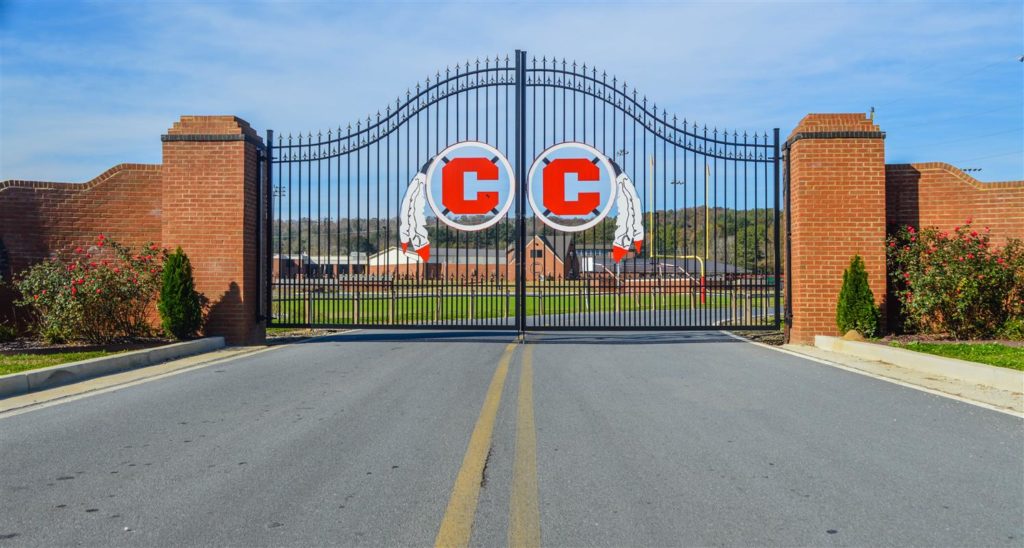
After a recent increase in scrutiny, the Chattooga County School system’s use of the 4-day school week has come under fire. Despite the obvious financial windfall created by the schedule change eight years ago, some residents believe that the absence of improved test scores indicates a direct correlation to the schedule change.
AllOnGeorgia reached out to officials from the Georgia State Department of Education for answers to clarify some of the misconceptions being spread in the rural community. For local citizens concerned about the school schedule, actual facts are something that have been in short supply.
Ripe For Takeover
Chattooga’s schools are NOT on the “priority” or “focus” list. Generally, if a school or entire district makes that list, the state intervenes to improve the school and governance. In a recent local publication, a citizen was quoted as saying that Chattooga’s schools were ripe for takeover because they were on a four-day week schedule.
The fact is, Chattooga High School WAS on the Needs Improvement List prior to implementing the four-day week. AllOnGeorgia spoke with Mary Lasseter, Department of Education case manager for Chattooga High School during the years the school was on the ‘Needs Improvement’ list. She would visit Chattooga High School 2-3 times weekly, working with leadership teams and then-Principal, Jimmy Lenderman, as well as Assistant Principal Beth Morgan. Lasseter observed every teacher in their classroom environment several times, even videotaping the teachers, and then met with the teachers and leadership team to discuss what was going good and what needed improvement.
During the time Lasseter was overseeing the improvements at the school, Chattooga administrators, due to budgetary reasons, implemented the 4-day school week. “I was concerned that the 4-day school week would be a lack or interfere with seat time, it never did.” Chattooga High School, with the extra day off, “had the value of being flexible to accommodate kids for improvement or enrichment. The extra day is a powerful tool for the school.” THE DEPARTMENT OF EDUCATION QUIT SERVICING CHATTOOGA COUNTY SCHOOLS AFTER IMPLEMENTING THE 4-DAY SCHOOL WEEK.
Lasseter went on to say “it’s a major accomplishment for a school to be removed from the needs improvement list. Many schools remain on the list for several years. Chattooga’s administration needs to be commended not hassled.” The actual schools found on the Governor’s take over list can be viewed here.
Graduation Rates Soar
Chattooga is now far from a takeover. With graduation rates at 94%, along with having a 76% Free-and-Reduced lunch participation rate, the State Department knows there are good things happening in the classrooms of Chattooga County. In 2009, Chattooga graduated 159 students, while on a five-day school week, representing a graduation rate under 70%. By 2017, 204 of 217 seniors walked the stage accepting their diplomas. The 94.2% graduation rate was not only the highest in school history, it was also the highest graduation rate of any school in the county, including city schools.
Chattooga School District includes the Chattooga Academy, which identifies students who, for various reasons, have historically not found success in a traditional school setting. Teachers, administrators and parents then work together to identify cases for placement within the Academy. Every graduate from the Academy program is viewed as a student rescued. The Academy truly carries a “no child left behind” philosophy. The Academy and Chattooga High School combined, still give the Chattooga School District an 83% system wide graduation rate which remains above the state average and is the highest district average in system history.
Tracking Cohorts
Following a single group of students through a single high school, from ninth grade through graduation represents a Cohort. This number captures everyone who drops out between the freshman and senior years.
The Adjusted Cohort Graduation Rate includes factors that influence student migration into and out of a school district, even taking into account students who might pass away. Chattooga’s enrollment has remained stable for many years. The adjusted cohort graduation rate has also increased significantly. Chattooga’s rate was first recorded in 2012 and was 73%. Just five years later, with a 4-day schedule, the graduation rate had soared to 94.3 percent.
What does this information mean to families in Chattooga County? It means that school leaders and teachers have been working and succeeding in developing a school climate and learning environment that creates success for their demographic of students. Overall, they are meeting the needs of the student body.
Challenges Faced
Chattooga County is a Title 1 school district. Over 76% of enrolled students receive free-and-reduced lunches. That is a proxy measure of the level of poverty in the district. When poverty levels are significant, achieving above a 90% graduation rate in nearly impossible.
Innovation: CTAE & JGG
All low-income school districts face an uphill battle with student retention and graduation rates. As students are pushed to drop-out and enter the work force early, school administrators are forced to find new and innovative methods for engaging these high-risk students and convincing them of the value of a high school diploma. The CTAE Career Pathways Program has been a critical component in improving overall graduation rates.
In addition, the Jobs for Georgia Graduates (JGG) program identifies students in 7th and 8th grade who are at high-risk for dropping out. As these students enter high school, they are placed into the JGG program which gives them special skill training with a focus on equipping them with practical life skills. Graduation rates in the JGG program within Chattooga High School have been an impressive 100%, while student members have won 14 national championships through the Jobs For Georgia Graduates Competitions. Principal Martin said, “we want these students to leave school being more prepared for life, better citizens, better parents, and better people… in 10 years, these students will be playing a part in running this community.”
Scoring Your School
It is important to note that test scores are not always a best measuring stick for the health of a school, or school district. Test scores are generally a “snapshot” of how the student is performing in a moment in time. Scores do not take into account the cumulative effect of their performance – nor the school’s for that matter. Unfortunately, the state grade report card system has a one-size-fits all approach to accountability and it does not reflect the work of school leaders, teachers, parents, and students.
One test score to keep in mind is the ACT, which test all four core areas. Chattooga’s ACT, on average over the last few years, is a 19 where the state’s average is 20. Since 2010, the ACT scores for Chattooga’s students have improved which correlates with the district’s graduation rate and overall student readiness. This is not just reflective of the high school’s work, but the entire district plan to ensure readiness for life and work for all students.
Chattooga High School is NOT last among high schools in northwest Georgia on the ACT. Due to some selective reporting, a local publication omitted from their charts the districts of Murray, Whitfield and Carroll County, while adding in districts such as Bartow County. Murray County High School scored an average of 18.6, Southeast Whitfield High School scored an average of 18.3, and Temple High School scored an average of 18.3 as well. These are all school systems that are actually closer to Chattooga demographically than most of the other schools listed in the table, and are also schools that have actually been included geographically in Chattooga’s region before.
Without being redundant, the same is true of the SAT data. Chattooga High School’s 975 composite score was higher than Murray County at 952 and Southeast Whitfield at 968 (although Temple scored a 984). The local news outlet went on to list Trion City High School as having the highest SAT scores in northwest Georgia; however, in order to be listed on the Department of Education Website, a school must meet a minimum number of test takers to be considered statically relevant. With fewer than the state-minimum of 15 test takers, Trion did not meet the standards to be included in the official DOE data, therefore any results reported are considered unofficial by the DOE. If only one or two SAT scores are going to be reported, Chattooga’s high score this year is a 1380.
Testing Shows…
While there are pros and cons to a four vs. five-day work week, it should be noted that long-term research studies indicate no significant difference in student performance from a four to five-day schedule. Three separate well-cited studies out of Colorado, whose districts are no strangers to the 4-day schedule, state that 4-day students had some academic gains, while one saw no difference, and the third indicated the 5-day schedule had slightly better (although not significant) academic results in some areas.
Another highly-cited study completed by Georgia State University professor, Mary Beth Walker, on another Colorado school states the following:
Our results suggest that student academic achievement has not been hurt by the change in schedule. Instead, the evidence indicates that the adoption of a four-day school week shares a positive and often statistically significant relationship with performance in both reading and mathematics; the math results in particular are generally robust to a range of specification checks.
However, most researchers and school leaders often caution against inconclusive results. The decision to stay on a four-day schedule should not be based solely on test scores, but on community concerns. Clearly, Chattooga County Schools have figured out how to dodge uncertainty in the ever-changing world of education accountability, while maintaining as much of their available resources as possible.
The Cost of a Day
If Chattooga County Schools were to go back to a 5-day schedule, the elected school board members need a detailed strategy that eases the transition. Simply increasing the millage rate or throwing out more ESPLOSTS would only generate more consternation in the community. Having a well-thought-out strategy would be critical. Currently, the school system has a $25 million-dollar budget, with $19 million of that dedicated to teacher salaries and benefits, leaving the rest for school operations.
According to information provided by the Superintendent’s office, an additional $785,589.07 is the amount needed in the annual budget to accommodate a fifth day of school. Currently the school system millage rate is 13.683.
State Funding
Chattooga, like many small rural school districts, suffers more under the out-of-date state-funding formula, which the previous two Governors failed to correct. Chattooga’s school district is short $310,000 in state funding cuts. Credit needs to be given to the Board of Education and local superintendent for balancing the budget and student performance with outside limitations in funding.
Identify the Problem, Find the Solution
With an election year at hand, it is easy to see how the issue of school schedule can be turned into a hot button political controversy, but the truth is much more complex that picking a side and shouting down an opponent. It appears that some voters will now use the school schedule as their litmus test for office and immediately condemn a candidate who doesn’t support their view point.
But the facts of the schedule are a matter of interpreting statistics. For detractors of the 4-day school week, it seems that their philosophy centers around a belief that one additional day of school would directly result in an increase in test scores. The facts do not support this belief. If a 5-day school week means higher test scores, then point to a year in which Chattooga County Schools had test scores that ranked in the top of the state. The facts are that a culture of agriculture and industry have always pushed students in this area toward careers that didn’t include higher education. The conclusion that area schools with higher test scores utilize a 5-day week, therefore a 5-day week will mean higher test scores is a complete fallacy. The schools in the northwest Georgia area who scored BELOW Chattooga, ALSO employ a 5-day week.
Solutions to improving test scores are available. Magnet programs for Science and Math, the International Baccalaureate Program, Technology Programs and countless other opportunities to recruit and retain talented test takers are out there. But a knee-jerk reaction to a false comparison, coupled with the idea that a change in schedule will result in higher test scores (when Chattooga historically has never had high test scores with a 5-day school week), will only compound the problems by leaving the school system broke, and tax payers left with empty pockets and no answers. Meanwhile, the test scores would remain the same.
Failed Mission…??
With record breaking graduation rates, it is completely impossible to declare Chattooga’s schedule a “failed mission.” In military terms, the past 8 years have been a resounding victory.














Freddy Dowdy
January 19, 2019 at 10:12 pm
As a past educator in Chattooga County, I commend the research and factual information given and do suggest the BOE rethink there decision of a 5 day school week and base any changes based on factual information. Most of our property owners work on low income, living pay day to pay day, and an additional school tax would be a burden for most.